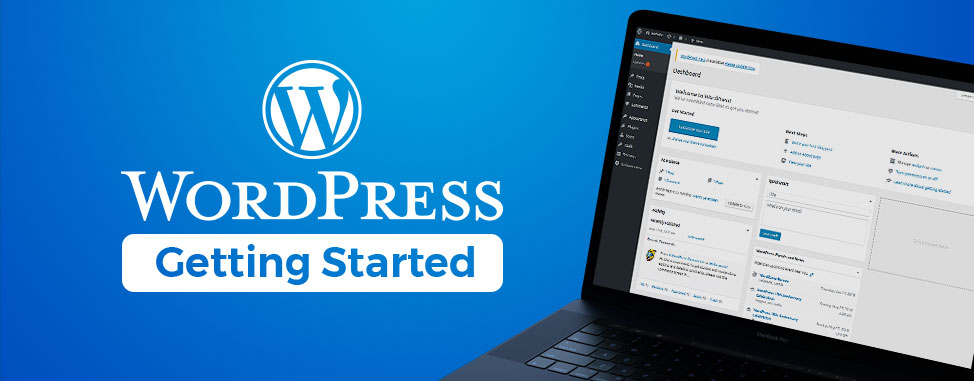
Does my website need a dedicated IP?
If you have or manage a website, you’ve probably heard of a Dedicated IP Address. But what is it exactly? And more importantly, can your website benefit from a dedicated IP?
Since online knowledge is power, we’ll answer those questions in this 4-min read. Let’s go!
- What’s an IP address?
- What’s the DNS’ role in all this?
- 2 types of IPs
- So what is a dedicated IP address?
- What is a shared IP address?
- Does a Dedicated IP help with SEO?
- The Benefits of a Dedicated IP
- Do I need a dedicated IP for my website?
- Conclusion
Let’s first review some basic terminology.
What’s an IP address?
IP stands for Internet Protocol and is a set of rules in charge of delivering data to the right destination across networks like the internet.
An IP address (often called just ‘IP’) is a unique string of numbers that looks like this:
158.69.149.142
Every device on the internet is assigned one, and the role of an IP address is to find, identify and communicate with devices on the web.
What’s the DNS’ role in all this?
Nobody wants to live in a world where you need to enter a bunch of numbers to find a website. Domain names are so much easier to remember, right?
The Domain Name System translates domain names into IP addresses which creates a better online experience for all of us users... A bit like how a phone book translates or connects a name to a phone number.
For example, if you type whc.ca in your browser, the DNS system translates it to WHC’s IP address (158.69.149.142) and TADA, you found us!
2 types of IPs
IPv4 - The most common
Internet Protocol version 4 dates back to the early 80s. An IPv4 address consists of four sets of numbers ranging from 0 to 255, each separated by a dot (just like 158.69.149.142)
This allows more than 4.2 billion combinations. Phew! More than enough, right? Not quite.
Still today, IPv4 is the most common type of IP. However, now that most people connect to the internet with several different devices, we’re bound to run out of addresses soon. Enter IPv6.
IPv6 - The next generation
As the internet grew in popularity, it became clear that IPv4 addresses were not enough. A new version was therefore invented: Internet Protocol version 6. In addition to a huge increase in the number of addresses available, IPv6 also offers a security component.
IPv6 and IPv4 have the same role: providing a unique address for devices to communicate on the internet. However, IPv6 looks something like this:
2a03:2880:f112:182:face:b00c:0:25de
IPv6 consists of 8 groups of 4 Hexadecimals (0-9 and A-F). This allows for a much larger number of combinations: 340 decillion, to be exact! That's 340 followed by 36 zeros. Double phew!
Psst… Can you guess which website uses the IPv6 above? The answer’s in the IP.
So what is a dedicated IP address?
A dedicated IP address is an IP address that is dedicated for your sole usage.
At WHC, when purchased with a web hosting plan, the dedicated IP address ensures that only your website uses that IP. In most cases, your visitors can either type in your domain name or your IP address to access the primary website assigned to that IP.
When purchased with a Dedicated or Cloud server, IP addresses are also reserved for your exclusive use, but they can be used for more advanced purposes, including nameserver hosting. You can also manage which website gets hosted on which IP address.
What is a shared IP address?
It’s the most common in the web hosting industry. A shared IP address is used by several websites and users usually hosted on the same server. Each website has its own domain name, but they all share the same IP address.
Your hosting provider will ensure that visitors are directed to the correct website based on the domain name, even if they have the same IP address.
Since users with a shared IP address use a shared server, the resources allocated are limited to some extent. In addition, any action taken by the owner of a website can affect other sites. For example, when a user with a shared IP address is banned or blacklisted for sending unsolicited emails, this may impact the reputation of other users’ email services.
Does a Dedicated IP help with SEO?
The short answer: NO!
That being said, one thing that can affect your SEO is your website's speed. If your account is on a shared hosting server, it’s probably sharing the same IP with other heavy or high-traffic websites on the same server.
This might slow down your site, and website performance influences how your website shows up in SERPs. However, there are so many other factors that come into play when it comes to SEO… and a dedicated IP might not be the best solution to speed up your website.
The Benefits of a Dedicated IP
SSL Support
A dedicated IP address enables support for SSL security on older browsers that may not support SNI technology. Since most modern browsers now support this, a dedicated IP address for SSL is not required, but recommended. In addition, without a dedicated IP address, if an SSL certificate expires or malfunctions, it may end up displaying another website hosted on the same server, instead of the actual website.
IP reputation
IPs can end up being blacklisted for mail abuse reasons (SPAM) or if a website is infected with malware. While WHC does not tolerate any abusive activities, accidentally blacklisting an IP is a possibility. A dedicated IP helps to avoid such situations, especially on Cloud or Dedicated Servers.
Security & Portability
In some cases, a dedicated IP address can help protect your website, by reducing the risk that an attack targeting another website that shares your IP would also affect your website’s performance. In addition, a dedicated IP on certain types of hosting infrastructure can facilitate the migration of an account from one server to another while minimizing disruptions.
Better DNS Control
Cloud and Dedicated Server owners as well as clients operating Reseller Hosting plans may run their own DNS servers. In this case, you can set up a pair of nameservers (such as ns1.yourservername.com and ns2.yourservername.com). The nameservers may be unbranded or branded (using your own domain name). In both cases, you’ll need at least two Dedicated IP Addresses.
Do I need a dedicated IP for my website?
Although a dedicated IP can be a great solution for some, it's not always the case. It’s important to determine and understand the needs of your website first.
So to simplify matters, let’s look at the 3 most common scenarios:
- Your site is new or still growing: a shared IP address is usually a solution that works well
- Your site regularly receives a lot traffic: we recommend you get a dedicated IP address
- You run an e-commerce site that generates substantial revenue: we recommend you get a dedicated IP address.
Conclusion
If you're still not sure whether your website needs a dedicated IP address or not, get in touch with our team for a consultation. We'll be able to help you figure out whether or not you need one and answer any questions you may have.

Also on the WHC Blog

Get Started with WordPress in 8 Easy Steps (2023)
WordPress is the world's most popular content management system because it’s incredibly versatile, easy to use and open-source. Much more than just a blogging platform, WordPress is also a popular eCommerce platform. According...
Read full article
Ubuntu is here!
We have great news for Cloud and Dedicated server administrators... Ubuntu is now available at WHC! Want to learn more about this powerful operating system? Read on! What is Ubuntu? What’s the difference...
Read full article





